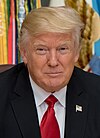



US-Sudanese dialogue
US sanctions on Sudan
Hatem Babeker Awad Al - Karim
Introduction
Since ancient times, international relations have defined the method of sanctions as a means of imposing wills among states and is an alternative mechanism for armed confrontation. In the present era sanctions have become one of the foreign policy instruments of influential countries, especially the major powers that seek to impose their interests and achieve their agendas on the least capable countries. Economic sanctions can also be among the major countries. One of the most prominent examples of this pattern is the sanctions currently applied to the Russian Federation by the United States and the European Union after the Russian Federation annexed the Crimea.
The economic sanctions imposed by states on countries aim to achieve a number of goals that may correspond to the stated reasons for imposing economic sanctions. They may aim to stop the rapid growth or to limit the ability of the state to influence the international decision in general and to limit its influence. Political or regime change, economic sanctions often have negative effects that create crises that can develop into humanitarian disasters as in the sanctions imposed on Iraq in the late 1990s and the beginning of the third millennium, child mortality rates have increased and spread Famine and nonexisting food, making the United Nations to devise a program - oil-for-food- The United Nations has overseen the export of Iraqi oil to ease the disaster caused by the blockade and economic sanctions. Sanctions are a way to impose the will of political states without dealing with wars, as is the case with North Korea and Iran, which are subject to European, American and international sanctions because of their nuclear programs
Economic sanctions on countries may start gradually or fall into one package, but most often include a ban on aid, technology, banking transactions and weapons. Economic sanctions are defined as a system of forced cooperation. Sanctions at the end are meant to sit at the negotiating table to reach political solutions on disputed issues or disputes
Economic sanctions imposed on Sudan are not a pattern of forced co-operation between the Sudan and the United States. This must be informed of its roots and effects on the macro-economy of the Sudanese states and ways to get out of it.
US sanctions on Sudan
The US government has imposed sanctions on Sudan, which are renewed annually. Under these sanctions, US trade and investment with Sudan and the freezing of state-owned and ordinary citizens are restricted, as many activities related to human development have been restricted and technology restricted
Sudan recognizes that US economic sanctions can only be lifted through direct dialogue between Sudan and the United States. The dialogue has partially raised US sanctions, and Sudan remains on the list of state sponsors of terrorism, meaning that US sanctions still trigger them. This is why we will review the objectives, areas and impact of US sanctions on Sudan's economy and human security in Sudan
What US sanctions apply to Sudan
The United States applies two types of sanctions to Sudan.
Sanctions resulting from the existence of applicable public laws requiring the US administration to implement sanctions on a particular country under specific classifications such as default of debt or lack of respect for religious freedoms ... etc
Sanctions specifically targeted at Sudan and issued as executive orders by the US executive or through parliamentary legislation from Congress
Type I: Penalties imposed under pre-existing laws:
Sudan was first introduced in 1988 when Sudan defaulted on its US debt service for more than a year. Under US law, sanctions were imposed on US foreign aid, with the exception of humanity
In 1990, Sudan was deprived of foreign aid under the pretext of a military coup and applied to US laws. This denial continues until the US Congress declares that democracy has returned to Sudan
The impact of these sanctions is that Sudan does not receive any assistance under a number of programs, such as the US Foreign Military Assistance Program, US Assistance for Debt Restructuring
In 1993, Sudan was added to the US list of state sponsors of terrorism, meaning that Sudan is subject to a long list of sanctions, such as: agricultural aid program, support program for peacekeeping forces, support of the US Export and Import Bank, support in international funds and financial institutions, International Monetary Fund and Sudan's denial of preferential treatment)
In September 2003, based on the Anti-Human Trafficking Act, Sudan was classified as a third-tier country in the US State Department's Trafficking in Persons Report
The second type of sanctions: sanctions specifically targeted Sudan
Made in two ways
Executive orders from the US presidency are
November 1997: Comprehensive US sanctions against Sudan
On April 2006 he extended the ban on persons
In 2006 he continued to hold the Government of Sudan funds and exclusions
Legislation from Congress
Sudan Peace Act 2002
Sudan Comprehensive Peace Act 2004
Darfur Accountability Act 2006
Accounting and De-Investment Law in Sudan 2007
Comments
Post a Comment